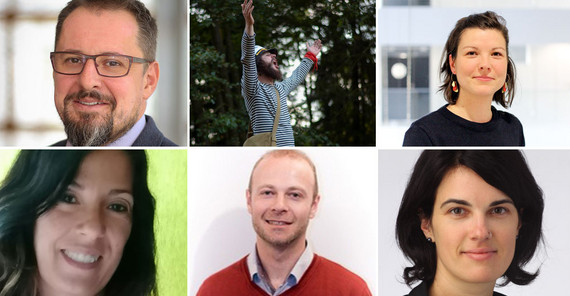István Tarrósy, EDUC Institutional Coordinator at the University of Pécs, Hungary:
I feel privileged to be part of EDUC; this dynamic alliance of 6 very fine universities with so many potentials and strengths. For me, international cooperation is life. I feel good when I can foster partnerships with colleagues in other countries for the same cause. It is not only for personal gains and development, but more importantly also for institutional commitments and improvement in the long run. I have been working for the realization of all these goals since 1994, and now, with EDUC, I am convinced that we all will make the most out of our enhanced collaboration. Long live EDUC!
Lukáš Wiesner, Marketing Manager at Masaryk University, Czech Republic:
I am a part of EDUC’s team taking care of promotion and marketing. Thanks to this, I can see to the inner workings of other universities all around Europe and meet people who inspire me to truly work on a European scale and see the possibilities of international cooperation. I am looking forward to this potential being fulfilled so that EDUC can spearhead the digital cooperation of European universities.
Chloé Duvivier, EDUC Project Officer at the University of Rennes I, France:
To me, EDUC represents what I would have loved to experiment with when I was a student: discover other European universities and their people, try new ways to learn in order to make my courses more dynamic, doing short mobilities. When I work, I know I’m doing it for students who will benefit from these great new opportunities. This is also a first-of-its-kind chance for many colleagues to consider their job on a European scale and to learn from it. Many of us are so focused on our tasks that we can no longer see the big picture. EDUC gives us the chance to take a step back, exchange some practices with counterparts, get some fresh air, and stay motivated.
Daniela Ghiani, EDUC Project Manager at the University of Cagliari, Italy:
EDUC is a real challenge for me but also for my University. Constant discussion with colleagues from other universities highlights the strengths and weaknesses of each, allowing everyone to grow by exploiting the exchange of good practices. Due to COVID, we have not had the possibility to travel since March or meet in person. However, distance has not been an obstacle to go ahead in pursuing EDUC’s goals. The EDUC Campus is being created step by step and digital tools have never seemed as important to me as in this period.
Ludovic Collin, EU Project Manager at the University of Paris Nanterre, France:
I am very proud to contribute to the implementation of such cooperation at EU level and to building-up a sense of community within different universities. The EDUC Alliance is a great opportunity to bring cultural changes to students, academic and administrative staff regarding the use of digital tools in education in research and higher education institutions. Beyond EDUC, it is a way to promote values such as interculturality, solidarity, responsibility, and innovation in a more sustainable world.
Nadine Shovakar, Project Manager EDUC at the University of Potsdam:
Bringing Europe’s youth closer together, enriching their education with culture and language is something that is of crucial importance in a time, when our sense of unity is being challenged. To me, EDUC can serve as a catalyst for intercultural awareness and make a difference in people’s lives by opening their minds. On a personal level, I enjoy working with inspiring colleagues, to practice English and French and to share laughter across borders.
Visit the new EDUC website for further information:
https://www.educalliance.eu
This text was published in the university magazine Portal - Zwei 2020 „Digitalisierung“ (PDF).

